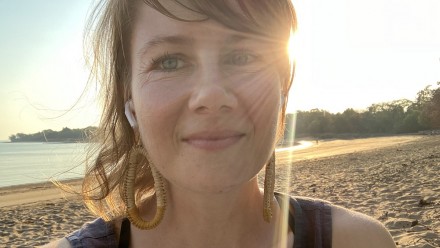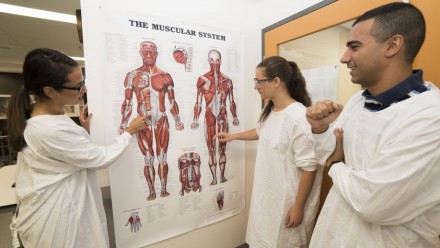Critical care experience inspires Cusack's philanthropic gift
The Australian National University (ANU) Medical School has established an endowment fund to support the training of critical-care specialists.
The fund was made possible with a donation from a prominent ACT family, David and Elizabeth Cusack, who have both had first-hand experience of critical care.
Professor Imogen Mitchell, Acting Dean of the ANU Medical School, said she was humbled by the Cusack's donation and thrilled to know it would help inspire and support the next generation of critical care specialists.
"Without critical care doctors having adequate education, lives can be under serious threat," said Professor Mitchell, who is also an intensive care specialist at The Canberra Hospital.
The endowment is supporting the David and Elizabeth Cusack Critical Care Symposium, Beyond the Emergency Department at The Canberra Hospital on Thursday 29 September.
The Symposium, hosted by the ACT Critical Care Society, is aimed at inspiring students and junior doctors to become critical care specialists.
The endowment fund will also enable the ANU Medical School to award a student prize for the best research paper in critical-care, and provide financial support for students to study overseas in a critical-care discipline.
David and Elizabeth had first-hand experience of the critical-care health professionals' dedication and skill when David presented to The Canberra Hospital's emergency department with pneumonia that developed into septicaemia.
On the same day in September 2015, Elizabeth presented with chest pains and was admitted to the Coronary Care Unit.
"It was here that the professionalism, skill and outstanding liaison from the staff at all levels was demonstrated to us," David said.
"In particular, the interaction with Imogen Mitchell had a lasting impact on the family.
"The clear, unambiguous nature of communicating with the family group and the actions of the staff led us to want to support the local critical-care capability."
Professor Mitchell said lives would be at risk without adequate education for critical-care staff.
"Critical care comprises of three disciplines: intensive care, emergency medicine and anaesthesia. They are all quite different but a common component is that they, from time to time, save the lives of critically ill patients."














